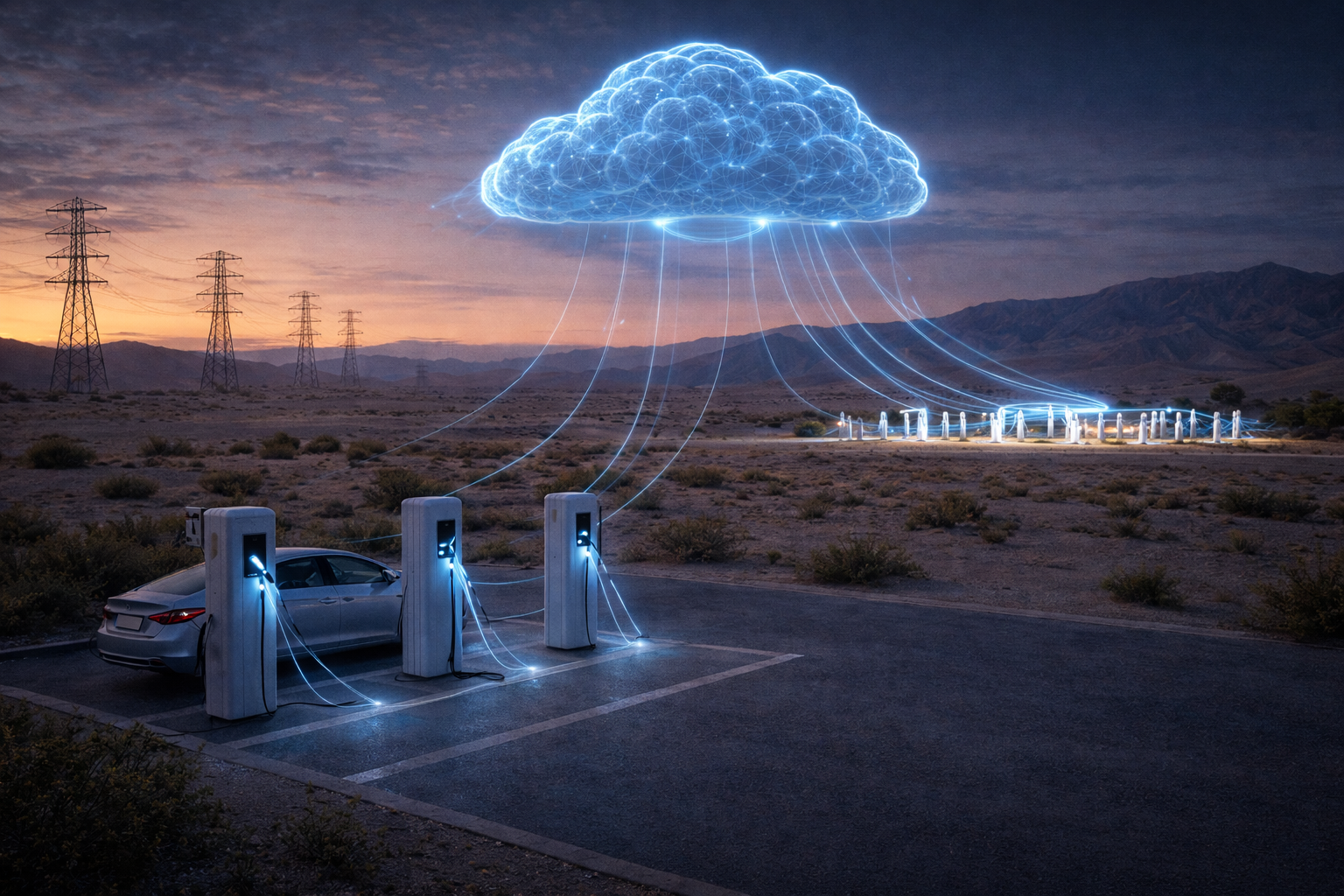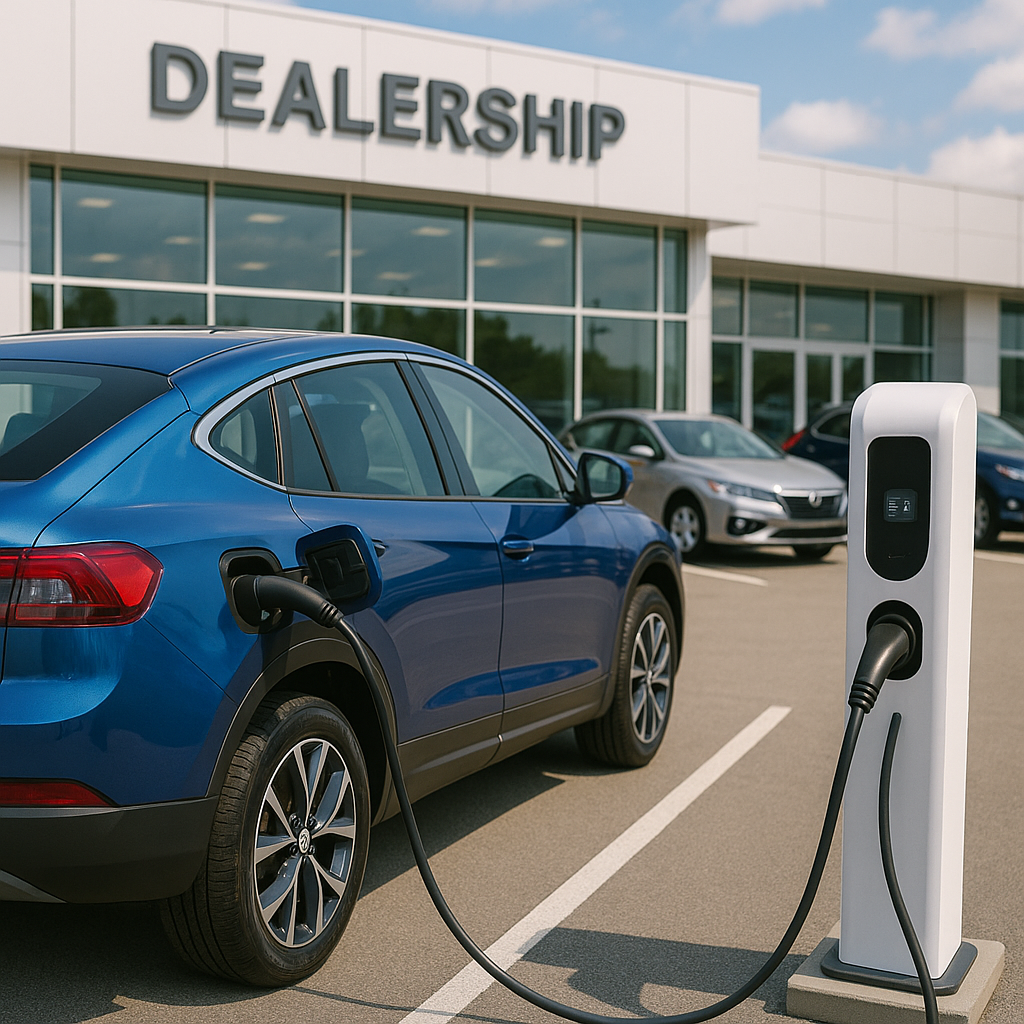Own Your EV Ecosystem: Custom CPO Solutions

In a world dominated by reliable internal combustion engine vehicles, it’s no easy feat to get consumers (both individual drivers and fleet operators) to switch to new technologies. After all, a vehicle is the second-largest investment a household makes. Compared to Europe and China, where 20–25% of new vehicles sold are electric, the US adoption rate is only 5–7%. However, according to Russell Hensley, co-leader of the McKinsey Center for Future Mobility in the Americas, about half of the new vehicles sold in the US towards the end of the decade will likely be electric powered. This brings significant opportunities—and challenges—for EV CPOs (Electric Vehicle Charge Point Operators).
The increased availability of electric SUVs and pickup trucks is a noteworthy contributing factor to the higher adoption of EVs. Considering exorbitant fuel costs, cost savings are also a significant consideration for consumers. And in the US, there’s soon to be yet another incentive: in September 2022, the United States Department of Transportation approved EV charging station projects across all 50 states, to cover around 75,000 miles of highways.
These developments require improved integration and functionality of charging apps and support services for the EV automobile world and its customers. We look at the challenges ahead and EV CPO solutions that can be a game-changer for electromobility providers.

The Problem With the Current EV Ecosystem and Network
The electric vehicle revolution is well underway. CPOs and EV charging networks need to keep up with the increased demand, fast-paced technologies, and charging architecture.
A report by the Institute for Electric Innovation projects that to support nearly 19 million EVs in the United States by 2030, around one million public charging ports are required. Today, however, there are only around 130,000 public chargers across the country. In addition, many of these impose restrictions on their access and use. Some EV charging companies use closed-network software; this only allows drivers with a specific app or network to see and access their stations.
As implied earlier, one of the main factors preventing consumers from switching to an EV is the lack of publicly available charging stations and limited range. Improved interoperability and standardization are critical to scale infrastructure and enable a multi-stakeholder approach that meets the demands of public charging stations.
Through interoperability, electric vehicle drivers can make use of any charging station no matter the network provider, meaning Electrify America consumers can also access Tesla chargers. Industry-standard Open Charge Point Interface (OCPI) enables users of different networks to find and plug in at EV charging stations. This simplifies the user experience and helps ensure that charging-station locations and hardware are not a limiting factor for EV drivers.
Vehicle-Grid Interoperability
Vehicle-grid interoperability poses another difficulty in the current EV ecosystem. The required logistics, agreements, and communication between the grid, utility companies, and charging manufacturers are not up to standard. Poor communication from government and utility companies to charging network providers often results in slow development, reduced investments, and less profitable projects. Effective and sustainable infrastructure development demands a common focus on interoperability and open standards to align system integration.
Payment Integration
In addition, payment method integration is a major pain point for EV owners. Payment methods currently include apps, RFID cards, and QR Codes. However, most stations only allow one or two of these payment methods. Germany recently introduced a law requiring companies to make it easier for EV drivers to charge by just using a debit or credit card instead of downloading multiple apps. Brands will need to come together in the US to streamline means of payment to ease service.

Solving Current Challenges With Custom EV Charge Point Operator (CPO) Solutions
While it has a major impact on the automotive sector, electromobility poses challenges for an entire network of sectors that need to develop together. The changes within the industry impact more than just EVs and charging stations; home energy, public parking, and workspaces are just a few other areas that also require adjustments.
The past decade has seen significant EV hardware improvements. These include improved charging station infrastructure, decreased charging times, and longer driving distances. However, to continue improving the connected infrastructures, more than just hardware needs to improve. There needs to be software in place to facilitate cross-platform integration, solve incompatibilities, and create a unified user experience.
With multiple providers in the network, there is no one-size-fits-all software solution. Off-the-shelf solutions can be helpful at first. However, customized software works better in the long run, since CPOs can configure it to their specific needs and hardware.
Charging demand, site location, budget, and corporate goals are all taken into consideration when developing a customized EV CPO solution. It may comprise a variety of services such as site assessments and design, charging infrastructure installation, cloud-based management software, payment processing, 24/7 support, reporting, and analytics. It can solve EV charging payment challenges as well as improve charging safety. This enables companies to optimize their own EV charging network and improve the client experience.
Innovative EV CPO Solutions With S44
Disconnected systems and incompatible infrastructures are the main obstacles preventing consumers from purchasing electronic vehicles. With new government support for EV charging stations nationwide, it’s essential for CPOs to optimize interoperability for a unified user experience.
Through user-centric software solutions and services, S44 creates digital experiences to transform the automotive, mobility, and energy sectors. Our full-stack software development offering includes strategy, design, UX/UI, development, and deployment via products and services. For your business, this means increased efficiency, cost savings, improved system reliability, improved safety and security, optimized energy usage, and increased sustainability.
With significant improvements and effortless, streamlined operations, your user experience can greatly outperform that of your competitors. Discover how you can streamline your EV ecosystem through custom software—get in touch today.







